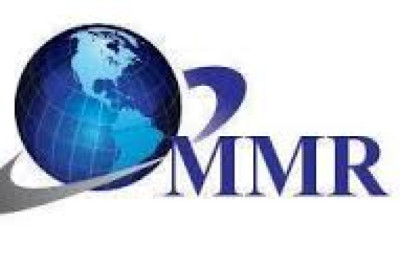views
Modern businesses generate immense amounts of data daily, from customer interactions and financial records to multimedia files and operational data. Managing and storing this data securely and efficiently is no longer a luxury—it's a necessity. For companies of every size, Network Attached Storage (NAS) offers a scalable, centralized, and reliable solution.
But what is network attached storage, and why does it matter so much for contemporary businesses? This post will break down the essentials of NAS, its advantages, and how businesses can use it to streamline their operations and bolster data management strategies.
What Is Network Attached Storage?
At its core, Network Attached Storage (NAS) is a file-level storage solution connected to a network, allowing users to access and share data from multiple devices. Think of it as a private cloud—but one that resides securely within your organization's premises.
NAS systems typically consist of:
- One or more hard drives housed in a central storage server.
- A minimal operating system running on the server, designed to facilitate data storage and sharing.
- A connection to the local network, enabling access to stored data across multiple devices.
Unlike external hard drives or simple cloud storage, NAS operates as a central "data hub" for an organization. All authorized network users can access stored data, making NAS a practical solution for businesses with distributed teams or growing data storage needs.
Why NAS Is Vital for Modern Businesses?
Data is now one of the most valuable assets for businesses, and effectively managing it can pave the way for success. Here’s why NAS has become a critical tool in today’s enterprise environments:
1. Scalability
Modern businesses are dynamic, and their data storage solutions need to keep up. Many NAS solutions, especially Scale-Out NAS Storage, allow companies to easily add new drives or expand storage capacity without significant downtime or infrastructure changes. This scalability is critical for growing businesses that need their storage to evolve with their operations.
2. Centralized Storage
Instead of scattered storage solutions (e.g., individual workstations or dispersed external drives), NAS centralizes data in one accessible location. This ensures seamless collaboration across teams and guarantees that everyone has access to the latest versions of critical files and documents.
3. Cost-Effectiveness
Compared to traditional storage options like on-premises servers or high-tier cloud storage, NAS offers a cost-efficient balance between performance and budget. Businesses can avoid recurring cloud subscription fees while maintaining high levels of control over data storage.
4. Data Security and Backup
NAS systems often come with built-in redundancy and backup features, such as RAID configurations. These features ensure that even if one drive fails, your data remains secure and accessible. Additionally, many NAS devices allow businesses to configure automatic backups across multiple locations, minimizing the risk of data loss.
5. Improved Access and Collaboration
For businesses managing remote or hybrid teams, NAS serves as the central access point for dispersed employees, ensuring secure file sharing and collaboration. With advanced NAS solutions offering role-based permissions, businesses can also tailor data access to users, protecting sensitive information while enabling teamwork.
6. Private Cloud Environments
For companies concerned about data sovereignty, NAS offers a "cloud-like" experience without involving third-party services. This control minimizes risks such as data breaches and allows compliance with privacy regulations like GDPR.
How Does Scale-Out NAS Storage Work?
One of the most important advancements in NAS technology is Scale-Out NAS Storage. Unlike traditional NAS systems with predetermined storage limits, scale-out NAS allows businesses to expand their storage infrastructure effortlessly. Here’s how it works:
- Modular Growth: Scale-out NAS enables businesses to add nodes or storage devices as their data grows. Each node integrates seamlessly with the existing system, creating a unified storage environment.
- Seamless Performance: Unlike standard storage solutions, expanding with scale-out NAS doesn’t slow performance. This is crucial for industries such as media production, analytics, and engineering, where speed is non-negotiable.
- Simplified Management: With a single management interface, companies can maintain visibility into their entire scale-out NAS ecosystem, avoiding the complexity of managing multiple disconnected systems.
Popular examples of scale-out NAS solutions include tools like Dell EMC Isilon, Qumulo. These platforms are widely trusted in industries like healthcare, finance, and media and entertainment, where large-scale file storage is paramount.
NAS in Action: Real-World Applications for Businesses
To truly understand the impact of NAS, it's helpful to explore real-world examples. Here's how NAS transforms daily operations for businesses in various sectors:
1. Media and Entertainment
Content creators, video editors, and media houses deal with massive file sizes. NAS provides the central storage needed to house large video files and artistic assets, making it easy for teams to access shared resources seamlessly. Its high-performance capabilities ensure smooth workflows even with 4K or 8K video editing across multiple users.
2. Healthcare
With volumes of patient records, imaging, and research data, healthcare organizations need reliable storage solutions. NAS ensures HIPAA compliance by providing a secure, accessible repository for sensitive health data while enabling smooth collaboration between departments.
3. Small and Medium-Sized Businesses
For startups and SMEs, NAS offers an affordable way to consolidate storage, streamline workflows, and improve productivity without the high upfront costs associated with traditional servers.
4. Video Surveillance
NAS solutions are widely employed in business surveillance setups to store extensive video footage from security cameras. These devices ensure efficient storage management while retaining crucial video data.
5. Education Institutions
NAS enables schools and universities to store and share educational materials securely. Students and faculty members can access shared lesson plans, assignments, and multimedia content from any device on the network.
Choosing The Right NAS Solution For Your Business
Given the range of NAS options available, selecting the right solution can seem daunting. Here’s what to consider:
- Storage Capacity Needs: Start by assessing future growth. A scale out NAS storage could be ideal for businesses anticipating rapid expansion.
- Access Requirements: If multiple teams require simultaneous access, prioritize performance and consider solutions with robust CPU and RAM specs.
- Budget: While NAS solutions are cost-efficient, initial investments vary. Choose a product that matches both your needs and financial constraints.
- Data Protection Features: Look for systems with built-in RAID support, automated backups, and data encryption.
Consulting with IT experts or NAS vendors is highly recommended for personalized guidance.
Leverage NAS to Future-Proof Your Business
Whether you’re leading a startup, managing a SME, or overseeing a large enterprise, efficient data storage is no longer optional. The adoption of Network Attached Storage and cutting-edge technologies like scale-out NAS storage allows organizations to stay competitive while tackling challenges like data growth, security, and seamless collaboration.
Start exploring NAS solutions today and see how they can transform your data operations for the better.











